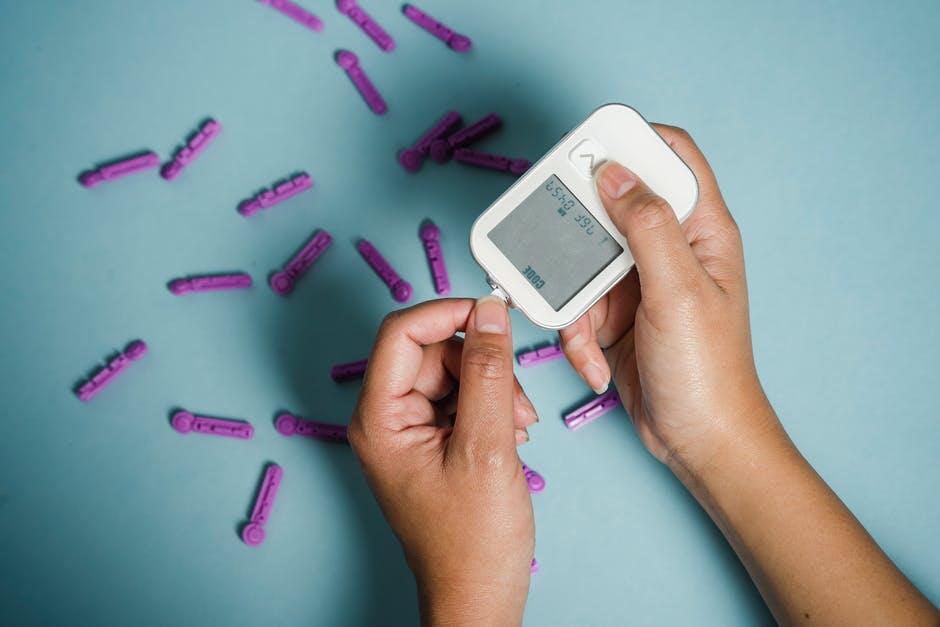
Almost 12% of the American population had diabetes in 2021, according to the CDC.
Diabetes is a chronic condition that calls for ongoing management of blood sugar levels. Some diabetics also face other health challenges, such as attention-deficit/hyperactivity disorder (ADHD). It may require treatments like Vyvanse (lisdexamfetamine).
Can diabetics take Vyvance? Read on to learn whether diabetics can take Vyvanse.
Vyvanse is a prescription medication. It’s most often used to treat ADHD and binge eating disorders. It’s classified as a stimulant, which means it affects brain chemicals associated with the following:
Vyvanse boosts dopamine and norepinephrine levels, which can help regulate these functions in people with ADHD.
While Vyvanse is highly effective for managing ADHD, it comes with certain side effects and considerations, especially for people with pre-existing conditions like diabetes.
For diabetics, a treatment plan is especially crucial. This is because medications that impact blood pressure, heart rate, and appetite can have extra implications for blood sugar management. Common side effects of Vyvanse include:
For diabetics, the increase in heart rate and blood pressure can be concerning. It’s especially true if you already have diabetes-related complications like diabetic neuropathy or diabetic retinopathy.
Appetite and weight loss associated with Vyvanse can make it quite difficult to handle one’s blood sugar levels. It could lead to episodes of hyperglycemia or hypoglycemia.
Diabetics often rely on a combination of medications to control their blood sugar, and understanding potential interactions between Vyvanse and diabetes medications is critical. Common diabetes medications include insulin, metformin, sulfonylureas, and DPP-4 inhibitors, among others.
Vyvanse may interact with these medications by altering how the body processes glucose. For example, because Vyvanse is a stimulant, it can suppress appetite and make it harder for a person with diabetes to recognize signs of low blood sugar.
If Vyvanse leads to weight loss, your insulin dosage or other diabetes medications may need to be adjusted.
Did you and your healthcare provider determine that Vyvanse is a suitable treatment for your ADHD? If so, there are steps you can take to manage your diabetes safely while on the medication.
The impact of Vyvanse on appetite and metabolism may cause fluctuations in your blood sugar. Regular monitoring will help you catch any significant changes early and adjust your treatment plan accordingly.
If Vyvanse decreases your appetite, you might need to modify your eating schedule to ensure consistent caloric intake. Smaller, more frequent meals may help stabilize your blood sugar levels.
Vyvanse can cause dry mouth and dehydration, which can exacerbate symptoms of high blood sugar. Adequate water intake is essential for managing diabetes and preventing complications like diabetic neuropathy or diabetic wounds.
Family Medicine Austin can help tailor your treatment plan. They will monitor for any potential diabetes medication interactions and adjust your medications as needed.
There is no one-size-fits-all dosage for Vyvanse, especially for diabetics who may have additional concerns regarding blood sugar control. The usual starting dosage of Vyvanse for adults with ADHD is 30 mg once daily.
Over time, a low dosage dosage can be adjusted as needed, but any changes should be made under close medical supervision.
Managing diabetes can also come with your mental health troubles, especially if you’re dealing with complications like diabetic neuropathy or diabetic retinopathy. People with diabetes are also at a higher risk of both depression and anxiety.
Vyvanse may help some diabetics achieve better mental clarity and emotional regulation. Still, it’s important to keep an eye on any mood changes or signs of increased anxiety or agitation. Remember, these are possible side effects of stimulant medications like Vyvanse.
Working with a healthcare provider, such as those at Family Medicine Austin, who can offer comprehensive care that addresses both diabetes management and mental health is essential.A joint approach will help ensure you’re managing both conditions as well as possible.
For those managing diabetes and ADHD, cost is often a concern when it comes to medications.
Medicare is not just a federal health insurance program for people over 65. It can also help certain younger people with disabilities. With this in mind, it may cover part of the cost of Vyvanse, depending on your plan.
Medicare Part D often covers prescription drugs, but you’ll need to check whether Vyvanse is included in your specific plan’s formulary. If you’re unsure about coverage, speak with your healthcare provider or a Medicare representative. Doing so makes it easier to explore your options for reducing out-of-pocket costs.
Diabetics taking Vyvanse should remain vigilant about potential complications. Long-term diabetes management is already complex, and introducing a stimulant medication like Vyvanse can increase the likelihood of certain complications if not monitored.
Stimulants like Vyvanse can cause increased nerve sensitivity, which may worsen symptoms of diabetic neuropathy. It could include pain, tingling, or numbness in the arms or legs.
As a stimulant, Vyvanse can raise blood pressure. It could possibly worsen conditions like diabetic retinopathy. It’s a condition in which the blood vessels in the eyes suffer damage due to long-term high blood sugar.
Dehydration and reduced circulation associated with stimulant use may impair wound healing. If you have existing diabetic wounds, discuss with your doctor how to best manage this while taking Vyvanse.
Can diabetics take Vyvance? Now you know, based on the facts above. It’s also important to consult with a certified medical professional.
Family Medicine Austin excels in diagnostic-based healthcare. Our passionate and trained team can help with diabetes, allergies, gastrointestinal disorders, and more.
Are you ready to feel better? If so, be sure to book an appointment with Family Medicine Austin now.